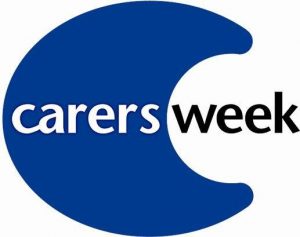
According to Carers UK, “1 in 8 adults (around 6.5 million people) are carers”, with the figure set to rise in the next few years with a predicted 9 million people to be involved in a care-giving role by 2037. These people often struggle in silence, which is why Carer’s Week is important to show support to the millions of people involved in caring.
“Carers Week is an annual campaign to raise awareness of caring, highlight the challenges unpaid carers face and recognise the contribution they make to families and communities throughout the UK. It also helps people who don’t think of themselves as having caring responsibilities to identify as carers and access much-needed support.“ – Carersweek.org
This week’s blog will take a look at some facts and figures about caring in the UK from Care Trust and other sources, and the types of sacrifices people in care-giving roles make to provide their loved ones with comfort and support.

Caring and Working
- Carers save the economy £132 billion per year, an average of £19,336 per carer
- Over 3 million people juggle care with work, however the significant demands of caring mean that 1 in 5 carers are forced to give up work altogether.
- Carer’s Allowance is the main carer’s benefit and is £64.60 for a minimum of 35 hours, equivalent to £1.85 per hour – the lowest benefit of its kind.
Caring and Wellbeing
- People providing high levels of care are twice as likely to be permanently sick or disabled
- 72% of carers responding to Carers UK’s State of Caring Survey said they had suffered mental ill health as a result of caring.
- 61% said they had suffered physical ill health as a result of caring.
- Over 1.3 million people provide over 50 hours of care per week.
Caring and Education
- Young carers can find it hard to go to school/college/university or keep up with course work. They can be bullied and find it difficult to make or keep friends. They can take on responsibilities well beyond their years and have little time for play or socialising or to be children or young people.
- Caring may mean that you have to put your chance of a career on hold or never have the opportunity to have a career and reach your full potential.
- Young adult carers aged between 16 and 18 years are twice as likely to be not in education, employment, or training (NEET).
- Based on Census figures there are estimated to be at least 376,000 young adult carers in the UK aged 16–25.
When in a caring role, it can be very difficult to find the time and support to develop your skills and knowledge in preparation for a future job, and the carers may sometimes feel that they are falling behind where their friends and colleagues have many opportunities to develop.
To fit around busy lives, Ajuda have a huge range of online training courses designed for individuals who are too busy to attend a physical training course. These courses can be paused at any point, so they’re great to fit in to a busy care-giving schedule as you can return to them as and when you would like.
Whether the learner wants to learn crucial skills for their current care role with our Health and Social Care courses, or want to gain some experience for the future in disciplines such as Business or Employability Skills – we have something for everyone on our website.
If you know any individuals currently in a caring role that would like to gain knowledge and skills, please point them to our website and social media where we also sometimes have some great discounts and give-aways for our courses too!


